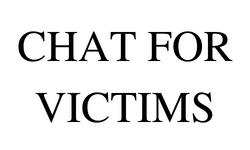Persons with disabilities face important barriers in accessing information, support and justice when they fall victims to crime. In particular, many means of support are inaccessible or difficult to access.
The CHAT for victims project was developed with the objective to improve access to information and support for persons with disabilities who are victims of crime. The project will achieve this goal by developing a live-chat service adapted to the communication needs of persons with disabilities, with emphasis on persons with voice, hearing, intellectual and psychosocial impairments/disabilities.
Activities will include research on communication needs of persons with disabilities and on solutions and good practices for developing a live-chat service adapted to these needs; development of training programmes for support providers and capacity building; and awareness-raising activities.
If you have any project-related questions, please do not hesitate to reach out to Inês Nunes De Freitas at: i.nunesdefreitas@victimsupporteurope.eu



